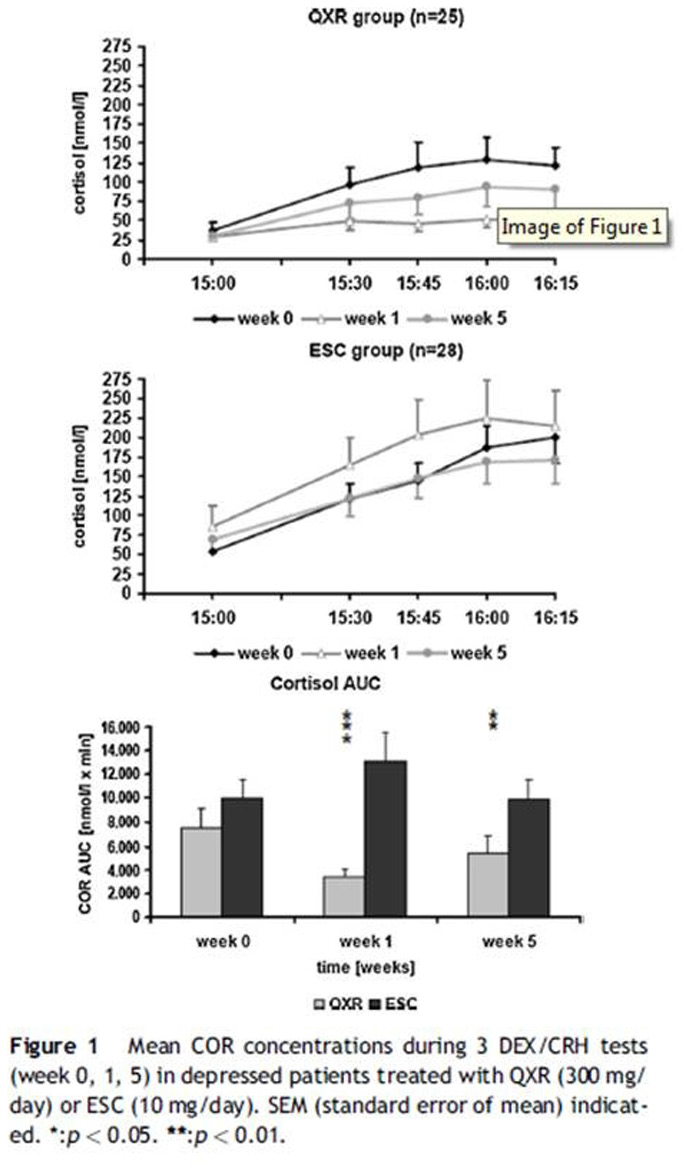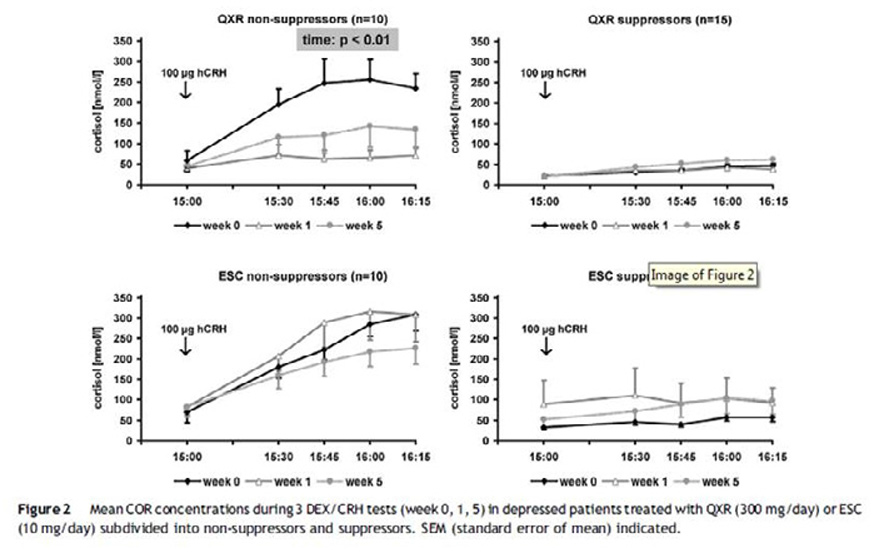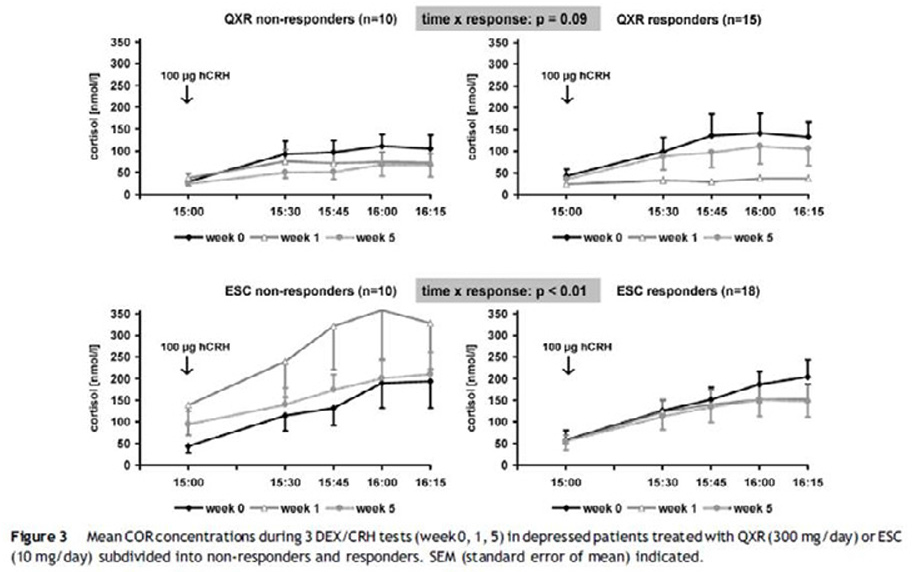No CrossRef data available.
Article contents
EPA-1654 – Impact on Cortisol and Antidepressant Efficacy of Quetiapine and Escitalopram in Depression
Published online by Cambridge University Press: 15 April 2020
Abstract
In this study, the impact of quetiapine fumarate extended release (QXR) and escitalopram (ESC) on HPA axis activity was investigated in depressed patients in relationship to antidepressant efficacy.
In a randomized, open-label 5-week trial 60 inpatients suffering from major depression (DSM-IV criteria) were treated for 5 weeks with either QXR (300 mg/day) or ESC (10 mg/day). The dexamethasone/CRH (DEX/CRH) test was performed before treatment, after 1, and after 5 weeks of treatment. Cortisol (COR) AUC values were used to assess HPA axis function. The Hamilton Depression Rating Scale was used weekly to estimate antidepressant efficacy.
QXR and ESC showed comparable antidepressant effects but strongly differed in their impact on HPA axis activity. In the QXR group, a marked inhibition of COR AUC levels was observed which was most pronounced after one week of treatment but showed a partial re-increase after 5 weeks of treatment. In contrast, ESC transiently stimulated COR AUC values (week 1) whereas COR AUC levels at week 0 and week 5 were comparable. COR improvement at week 1 (defined as COR peak value reduction between DEX/CRH test 1 and 2) was significantly associated with better clinical outcome.
Apparently, different effects on HPA axis activity reflect distinct pharmacoendocrinological properties of psychotropic drugs.



- Type
- E02 - e-Poster Oral Session 02: Depression and Suicide
- Information
- European Psychiatry , Volume 29 , Issue S1: Abstracts of the 22nd European Congress of Psychiatry , 2014 , pp. 1 - 2
- Copyright
- Copyright © European Psychiatric Association 2014





Comments
No Comments have been published for this article.